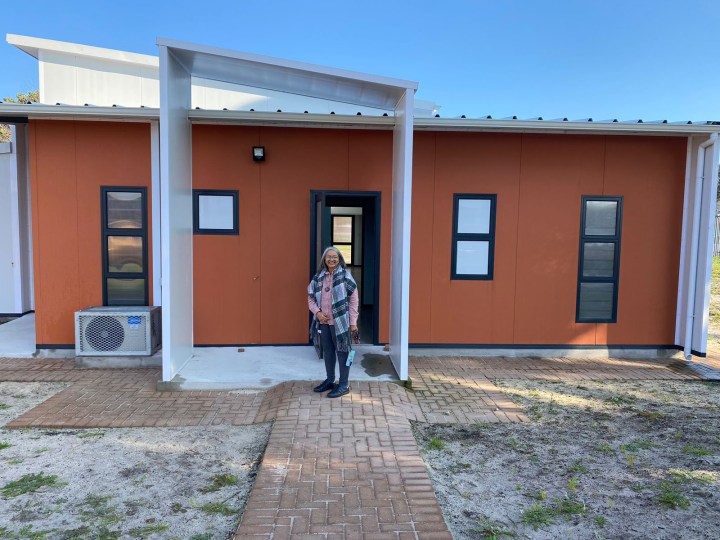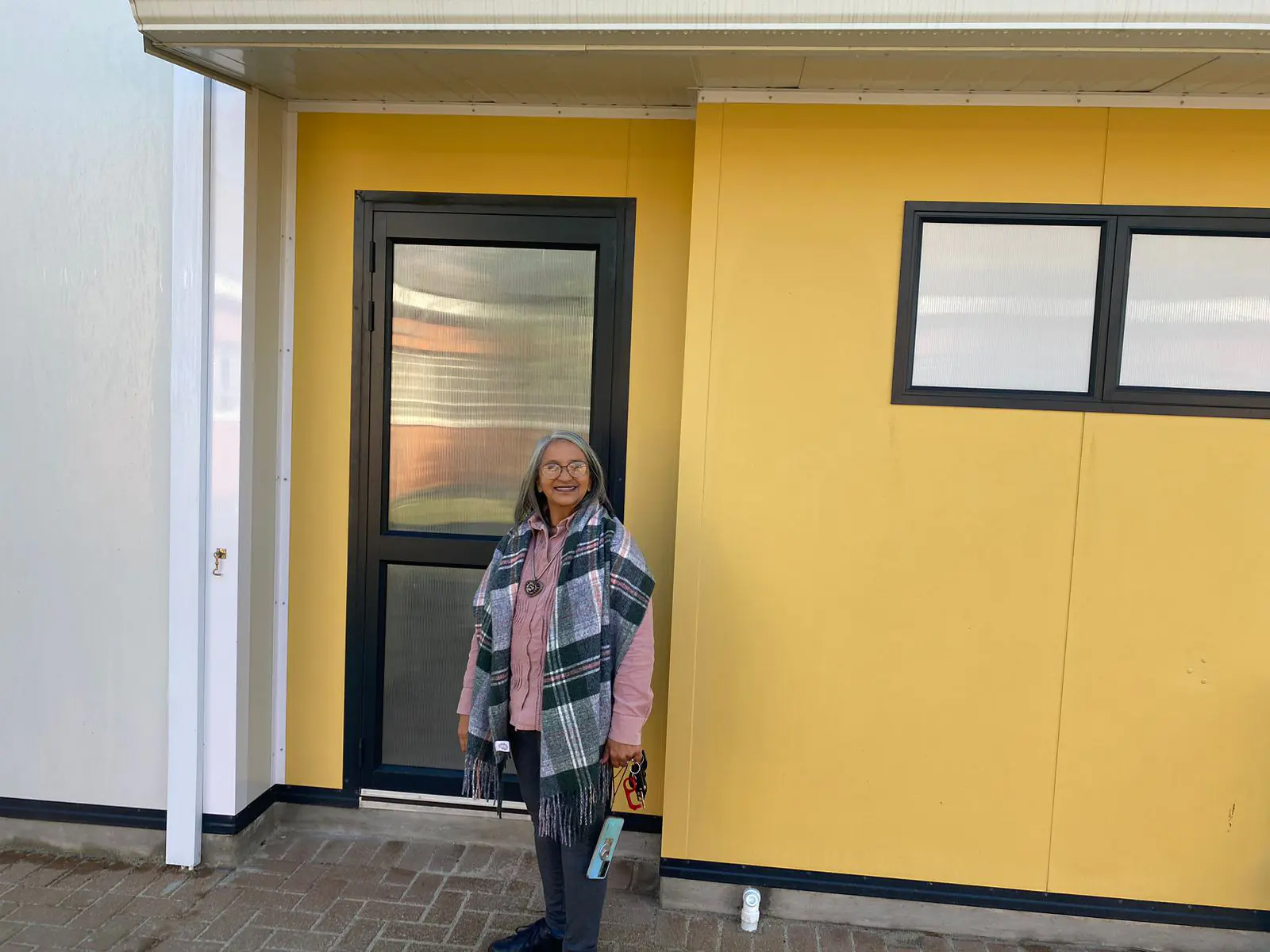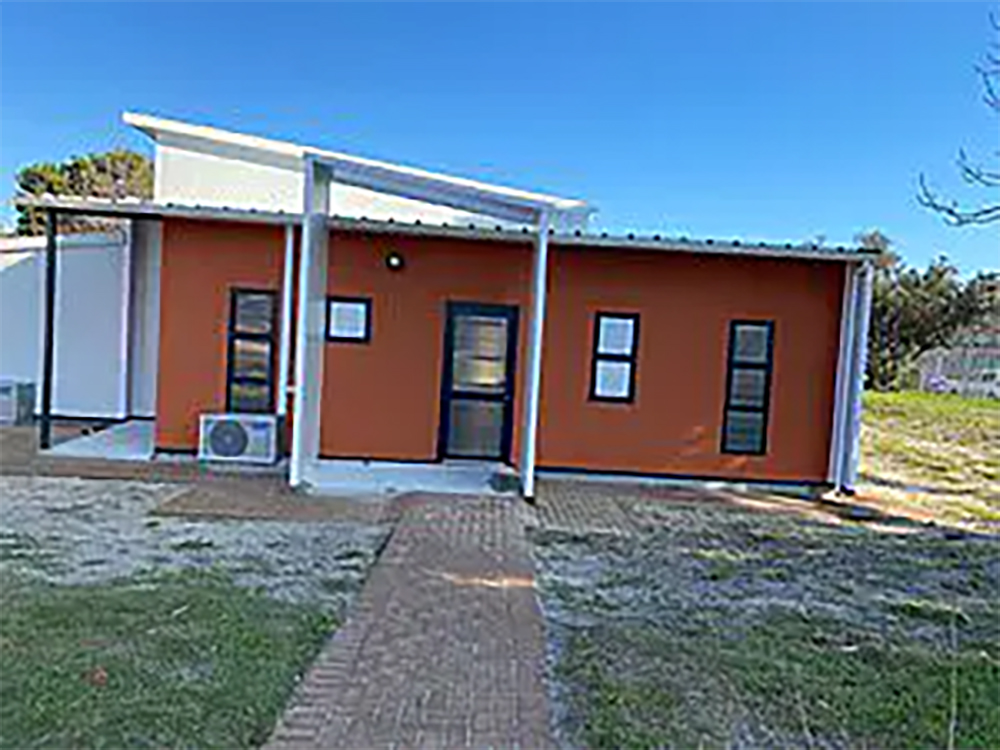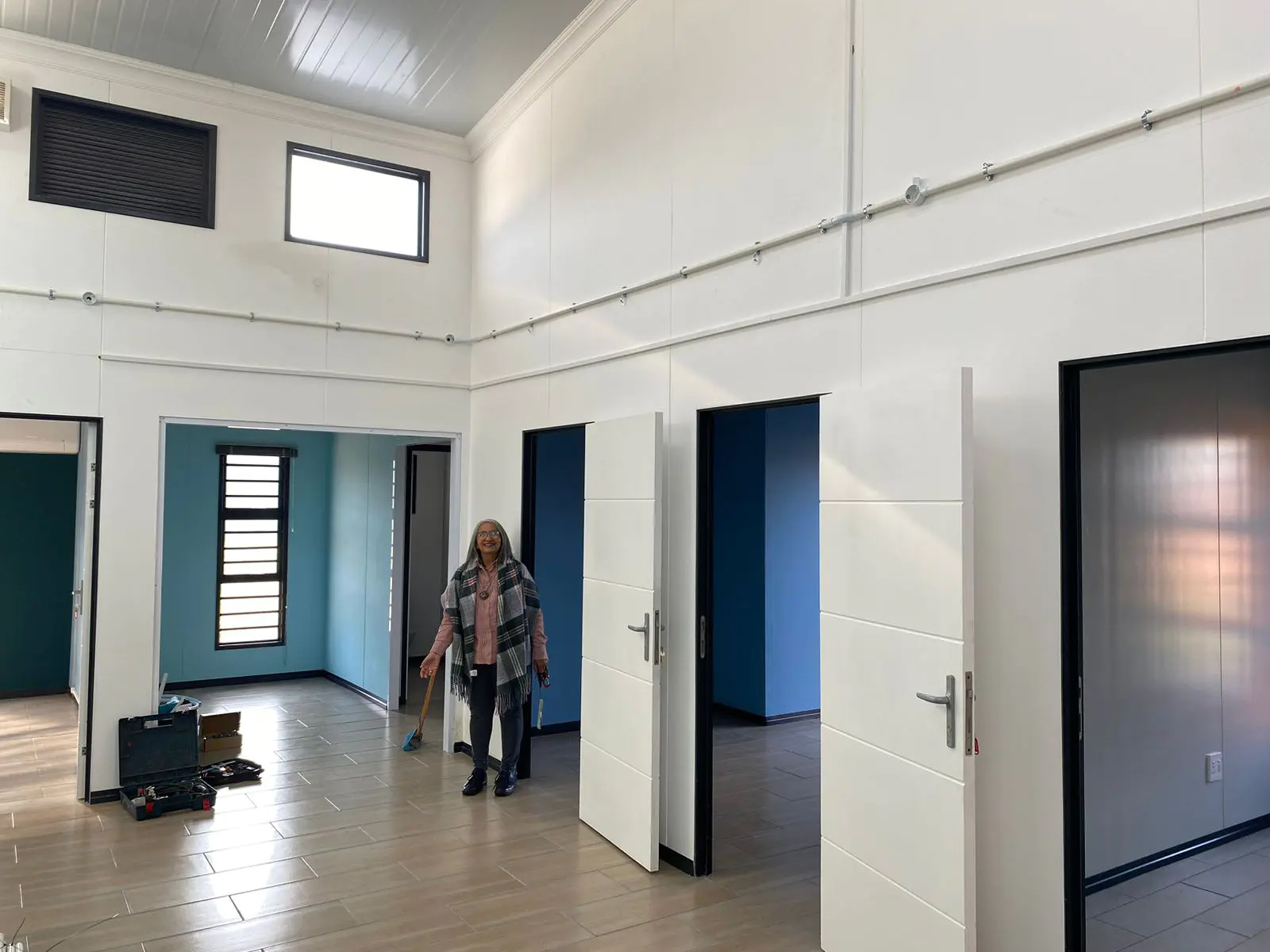SPOTLIGHT IN-DEPTH
Thuthuzela centres working well to support rape victims – but experts say we need more of them

South Africa has notoriously high rates of rape and gender-based violence. Thuthuzela Care Centres – one-stop facilities that provide support for rape and other GBV victims – are making a difference. But the 63 in operation are not enough, two local experts say.
It’s a rare sunny winter morning on the Cape Flats. We are standing inside a small building on the premises of the Heideveld Community Health Centre. This is a Thuthuzela Care Centre (TCC), one of the country’s 63 one-stop facilities that provide comprehensive support for victims of rape and other forms of gender-based violence (GBV).
The well-secured centre is in an area dominated by low-cost housing blocks, grey and littered, with washing strung up in rows between buildings; signs of a struggling community.
With me is Sharon Kouta, the programme manager for the GBV programme at Nacosa (Networking HIV and Aids Community of Southern Africa). A social worker for more than 43 years, she has spent most of her career focusing on gender-based violence.
She’s showing me around the Heideveld TCC and introducing me to the staff. There are currently no clients at the centre; victims’ privacy is guaranteed and fiercely protected.
I am greeted warmly by three women – one from the NGO, Rape Crisis, another who is the site coordinator for the National Prosecuting Authority (NPA), and a medical doctor.

Sharon Kouta outside one of the new buildings that the Heideveld Thuthuzela Care Centr will start operating from in August. (Photo: Sue Segar / Spotlight)
“At month-end, and also at Sassa time [when people receive their social grants], we know we will be busy,” one of them tells me.
The team is based here as part of the coordinated services supplied by the TCC. The Rape Crisis representative is there to greet victims and provide emotional support when they enter the centre; the doctor provides medical help and the NPA member is on hand to coordinate the victim’s support, including helping to report the matter.
There’s excitement in the air: This TCC – one of the busiest in the Cape – is about to move into a spanking new building on the same premises.
“This is my baby,” says a proud Kouta, as she shows me around the spacious, newly painted centre, which is set to open in August. Open 24 hours, with people always on duty, the new facility is one of four new TCCs being built by Nacosa, three with funding from the Global Fund to Fight Aids, Tuberculosis and Malaria and one funded by insurance company First for Women.
‘Safe spaces’
For victims of rape or other forms of gender-based violence, reporting an incident at a police station can be an ordeal: The open, public space, lack of privacy and, sometimes, the absence of empathy from police, can result in devastating secondary victimisation.
Victims often have to go from the police station to hospital for treatment, where they are expected to speak about an intimate, traumatic experience, often surrounded by people who are not necessarily sensitive to their ordeal. This is often followed by a legal process, involving difficult travel arrangements and unfriendly court environments. These stressful scenarios can result in underreporting of GBV incidents.
But the TCCs, which were first introduced by the NPA’s Sexual Offences and Community Affairs Unit (Soca) in 2001, have been game changers in terms of best practice for managing GBV cases.
Thuthuzela Centres, in a nutshell, are safe spaces where victims of rape or GBV are provided with social, psychological, medical and legal services.
As Kouta takes me through the new centre, she explains how it was designed in close collaboration with the NPA and with the Department of Health, to try to ensure a better experience for victims. There’s a welcoming entrance area; offices for the various role players, including for the NPA site coordinator; waiting rooms for clients; doctors’ consulting rooms; forensic rooms; bathrooms; a kitchen; a play area with two-way mirrors; and a separate children’s bathroom and toilet.

One of the new buildings housing the Heideveld Thuthuzela Care Centre – one of 63 safe spaces where victims of rape or GBV are provided with social, psychological, medical and legal services – which were first introduced by the NPA’s Sexual Offences and Community Affairs Unit in 2001. (Photo: Sue Segar / Spotlight)
How it works
Kouta talks me through how the TCCs work. “When a client enters the TCC, often in a state of high anxiety, they are immediately welcomed by a victim assistant officer. Here, at Heideveld, it’s a person from Rape Crisis [some TCCs have representatives from other NGOs, like Mosaic, as the “first responders”]. These people have social work backgrounds and are there to do the trauma containment and to give the client emotional support. They also ascertain whether medical attention is needed immediately, for instance, if there are open wounds. This is done in a quiet, private space.
Read more in Daily Maverick: Murder and sexual offences spike sharply as police minister reveals extent of SA criminality
“The first responder will then explain to the client all the different steps they will go through. For instance, they might explain that a nurse will test them for HIV, or for sexually transmitted infections, or, in some cases, for pregnancy; and that a doctor needs to conduct a forensic examination. Once these things are explained by the first responder, the client is sent for a medical and/or forensic examination. After the examination, they may shower. The first responder is the person who explains to the client that the procedure of the forensic examination is very invasive but that it is important for evidence that the doctor or nurse does this examination.”
As we continue our tour of the new facility, Kouta continues: “The TCC provides the client with a set of clean clothes, both to ensure dignity for the person, and to enable their worn clothes to be sent for DNA evidence. Clients are provided with a comfort pack, made up of fresh underwear, toothpaste and toothbrushes and sanitary wear.”
Kouta shows me examples of comfort packs. They are packed according to age and gender. “Sadly,” she says, “these include packs for children aged four to eight years old. The baby pack contains nappies. Children are not exempt from GBV.”
The new TCC has a second, separate entrance to ensure victims never come face to face with perpetrators, in case an alleged perpetrator has to be brought to the centre for blood tests. The centre is also wheelchair friendly.
“After the shower, if the client wants to open a case, they may do so. It’s good if they can as it helps with the conviction of perpetrators, but we don’t force anyone to open a docket. We don’t send victims to the police station… the statement is taken at the TCC,” says Kouta. “If police are not on-site, they are contacted and will come to the TCC to take down the victim’s statement, further ensuring that the whole process happens under one roof.
“The victim goes nowhere else but the TCC. So, it’s really a one-stop centre.”
‘Turning the tables’
During the third Forensic DNA Symposium, held in Cape Town in June, Advocate Bonnie Currie-Ganwo, Special Director of Public Prosecutions: Sexual Offences and Community Affairs Unit in the NPA, made the case that the TCCs have started turning the tables against the “pandemic” of gender-based violence and femicide (GBVF) in the country.
“Many people don’t want to speak about GBV victims, saying they must be survivors,” she told delegates. “I’m of the view that you need to empower the victim before you can call them survivors. Through the TCCs we hope to empower victims to transform into survivors and go through a court system.”
Read more in Daily Maverick: We need 365 days of GBV awareness, not a mere Sixteen
Currie-Ganwo explained that the TCCs were first introduced by the NPA’s Soca in line with the country’s National Strategic Plan to deal with GBV and femicide. Soca’s main role is to formulate and implement best practices in addressing GBVF.
“Optimal management of GBVF matters means adequate access to report GBVF, adequate pretrial services for the victim; prosecutor-guided investigations and prosecution by specialist prosecutors. There’s also a need for adequate procedures in place for the proper collection of evidence, and adequate forensic resources to analyse the collected evidence,” she said.
She said the prosecutor-guided investigation methodology is premised on joint management of the investigation by the SAPS and the NPA and that this collaboration “reduces undue delays in the finalisation of our cases and, again, increases the conviction rate”.
Thuthuzela (meaning place of comfort) centres are run in partnership with a range of departments and donors, with the aim of providing an integrated strategy for prevention, response and support for rape victims. TTCs are mostly situated near public hospitals and close to communities where GBV rates are particularly high. Apart from providing counselling and medical assistance, the TCCs help women to deal with police procedures and to build a case ready for successful prosecution. The interdepartmental collaboration includes representatives from the departments of Justice, Health, Education, Treasury, Correctional Services, Social Development and the SAPS, said Currie-Ganwo.
‘Underreported’
According to Currie-Ganwo, rape and GBVF in South Africa are shockingly underreported because of the difficulties victims encounter. But, while conviction rates are low, she says they are going up.
“In 2010, the conviction rate was 60%, and currently [in June 2023] our conviction rate is 76.5% for matters that are going through our TCCs,” she said. “As for the conviction rates of matters that don’t go through the TCC, they are slightly lower than the conviction rate in respect of TCC matters, but the comparison is difficult simply because most of our matters will not go through a TCC because of the limited number of TCCs.” She said the conviction rate of matters not going through TCCs has also increased, something she in part ascribes to the “rigorous training [of prosecutors] that’s happened over the years”.
One landmark study published in 2017 and based on just under 4,000 reported rapes, found much lower prosecution rates than those quoted by Currie-Gamwo. According to the police’s Annual Crime Statistics 2021/2022, there have been roughly 40,000 rapes reported per year for the past decade.
“The TCCs go beyond the psychosocial, the medical, and the legal. Our victims are mostly in impoverished areas, with no transport, no medical aid, no access to psychologists, social workers, and counsellors – and that’s where the TCCs need to be,” Currie-Ganwo said.
Staff at the TCCs are also trained to recognise if a victim needs a referral for mental help or for substance abuse, or if they need to go to a shelter or place of safety; a nurse will arrange follow-up visits, treatment and medication for sexually transmitted infections and HIV. “We use our networks to fast-track assistance,” she said.
“We’ve also introduced a domestic violence protocol, where we train our TCC staff to assist the victim to apply for a protection order.”
Elaborating on the one-stop process, Currie-Ganwo said that once a docket has been opened by a victim, the legal arm kicks in. “From here, a state advocate, preferably someone who is a specialist in GBV, will study the docket, ascertain what investigation is outstanding, consult with the investigating officer and prepare that docket to be trial-ready.

Inside the new home of Heideveld’s TCC with Sharon Kouta, which she says is a one-stop centre that provides everything a victim of rape or GBV might need – including the tools to open a case against the perpetrator. (Photo: Sue Segar / Spotlight)
Victims are also offered consultations with a specialist prosecutor before a case goes to court and given regular updates on the trial process by a case manager.
Currie-Gamwo said the TCC system works because it is “victim-centred, court-directed and has a multidisciplinary approach”.
A key part of the TCCs’ work is to inform and empower the communities they serve through community engagements such as public awareness campaigns through NGOs and schools. “The more informed communities are, the more willing they will be to access justice to ensure that the cases on the court roll reflect the extent of the scourge of GBVF,” she said.
She said a number of the TCCs have been constructed in collaboration with the private sector. “Our biggest success story is probably the Dilokong TCC in Limpopo which was financed by the Glencore mining company; and the Spar group is going to build one in Jozini, KZN.”
Testifying from the TCC
As we round off our visit to the Heideveld TCC, the doctor on duty excuses herself, saying she’s on her way to court to testify in a rape case. “Ideally, our clients should be able to testify from the safety of the TCC to the court – so they don’t have to face their perpetrator in court,” says Kouta. “We want to make this possible. The NPA is in the process of getting sponsorship to install a video link to the court so victims can testify from the TCC directly to court. We hope this can be the case for as many TCCs as possible.”
According to Currie-Gamwo the court audio-visual solution (CAVS) are set to be piloted at 14 selected TCC sites, to enable complainants, as well as doctors, forensic nurses and others, to testify from the safety of a TCC site, rather than from court. “We hope the court audio-visual solution will be implemented shortly,” she said.
Not enough facilities
While making the case for the success of the TCCs – and their contribution to an improved conviction rate – both Kouta and Currie-Gamwo are adamant that 63 TCCs are not enough for South Africa.
“That figure [of 63] should actually probably be doubled to really have a huge impact,” said Currie-Gamwo. “In the past two years, we’ve added eight new TCCs. So, we’re increasing the TCC footprint across the country.”
“We absolutely need more of them,” says Kouta. “In the most recent State of the Nation address, the President advocated for more TCCs. Now Treasury must find the budget for this.” DM
This article was produced by Spotlight – in-depth, public interest health journalism.





















Comments - Please login in order to comment.